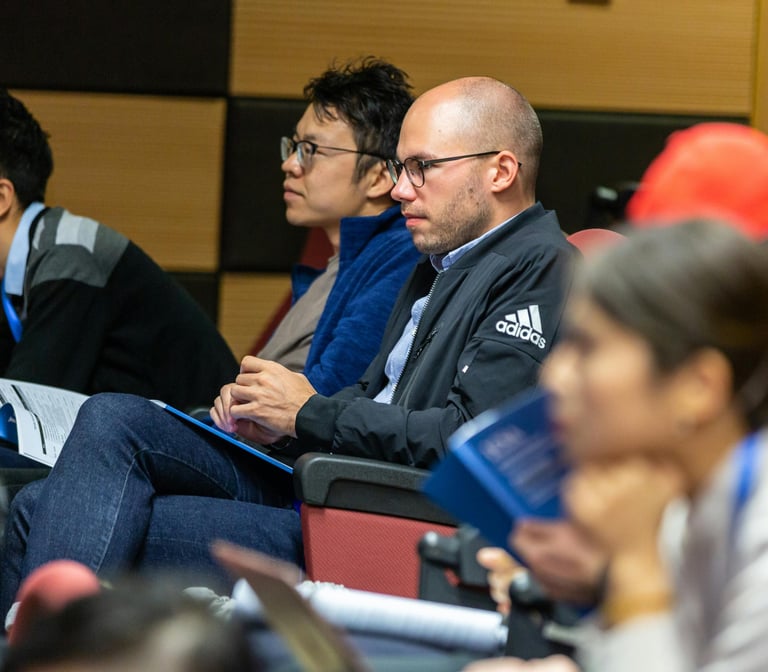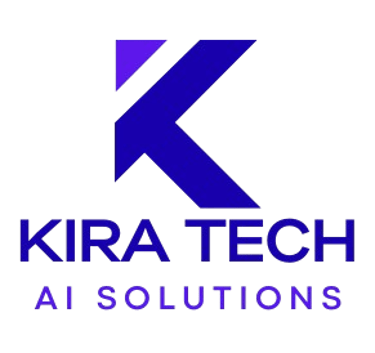Why Organizations Must Build Their Own Platforms in the AI Era. The Data Sovereignty Imperative
As we transition from an app-centered web to an agentic web—where Artificial Intelligent agents rather than apps will dominate our digital interactions within five years—large organizations face a fundamental question: Who owns their members' data, and who benefits from its use?
ORGANIZATIONAL TRANSITION TO AI
Jerry Romo, Sr. VP Kira Tech AI
10/15/20254 min read


We're standing at a critical crossroads. As we transition from an app-centered web to an agentic web—where AI agents rather than apps will dominate our digital interactions within five years—large organizations face a fundamental question: Who owns their members' data, and who benefits from its use?
The answer should be clear: members themselves, with their organizations serving as trusted stewards rather than data extractors.
For decades, organizations have relied on major platforms like Facebook, LinkedIn, and Twitter to build their communities. This approach has created a dangerous dependency. These platforms don't just host conversations—they own every interaction, profile every member, and monetize that data without sharing value with the individuals who generate it.
In the emerging AI era, this problem intensifies dramatically. Unlike social media, where platforms inferred our preferences from our behavior, chatbots and AI agents extract information directly. We're no longer being profiled—we're volunteering our thoughts, feelings, challenges, and aspirations in intimate conversations with AI systems. We're developing relationships with these tools, sharing information we would never post publicly.
This represents predatory behavior on a different level entirely.
Your members' data is their personhood in the digital age. Everything about them—their professional interests, career challenges, learning needs, relationship networks—is currently "owned" by big tech platforms. This is fundamentally wrong.
By building your own platform, you create a space where:
Members own their data and control how it's used
Data sharing happens on a permission basis with full transparency
The organization acts as a fiduciary, not a data harvester
Members' information isn't scraped, sold, or used to manipulate them
The real power emerges when organizations consolidate all member touchpoints—events, education, certifications, discussions, networking, purchases—into a unified platform. This creates something extraordinary: a comprehensive understanding of each member's journey that belongs to the member, not scattered across dozens of third-party platforms.
In an agentic web, this consolidated data becomes the foundation for personal AI agents that work for your members, not against them. Think of it as each member having their own executive agent, one with fiduciary responsibility to them alone, that understands their professional context because it's built on data they control within your trusted ecosystem.
When you control the platform and the data architecture, you can:
Provide personalized experiences at scale – AI agents can help members discover relevant content, connect with the right peers, and identify opportunities—all without invasive surveillance or manipulation.
Enable true data portability – Members should be able to take their professional profile, learning history, and network connections with them. Your platform becomes more valuable when it's interoperable, not when it locks people in.
Create a new economic model – Members are already providing valuable data through their engagement. Why shouldn't they share in the economic value? Imagine a model where active members receive discounts, benefits, or even revenue sharing based on their contributions to the platform's intelligence.
Offer genuine privacy and security – In a world of data breaches and AI training on scraped content, a closed, secure platform where members control permissions becomes a competitive advantage.
Counterintuitively, owning your platform accelerates growth precisely because you're not trying to own your members:
Trust becomes your moat – In an era of data exploitation, organizations that demonstrably protect member data will stand out. Your platform becomes a sanctuary, not another surveilled space.
Network effects within your control – When members invite colleagues, they're building value within your ecosystem, not enriching a tech giant's platform.
Data-driven insights for better programming – Understanding what members actually need (with their permission) allows you to develop better programs, events, and services—creating a virtuous cycle of value and engagement.
Reduced dependency costs – No more paying escalating fees to rent access to your own members on someone else's platform.
Passive revenue generation – Large organizations can generate passive revenue by creating and owning their own platform through advertising, sponsorship, and online learning functions.
The technology exists today to make this vision real, and Kira Tech AI has it. The shift to an agentic web makes implementation easier than trying to retrofit decades of entrenched app-based infrastructure. Everything is white space right now. We start with a web-based platform then populate. Gradually, over a year, the platform becomes more agent-driven based on what membership needs and wants.
Here's what large organizations should focus on:
Start with a new web-based community model – Build on infrastructure that separates member identity and data from the application and where the organization owns and manages that data. Members should have a clear understanding that their data is managed safely and will not be used for purposes other than meeting the goals of the organization.
Implement sovereign AI agents – These aren't chatbots that work for the platform—they're agents with fiduciary responsibility to individual members, operating on member instructions, protecting member data.
Design for interoperability – Your platform should enable members to connect with external tools and platforms while maintaining data sovereignty. The goal isn't to build a walled garden, but a trusted home base.
Create transparent data governance – Make it crystal clear what data is collected, how it's used, who has access, and how members can modify permissions or export everything.
Build the economic model – Whether it's revenue sharing, enhanced benefits for active contributors, or new forms of value exchange, show members they benefit from participation.
We're at a generational technology shift. The decisions organizations make in the next few years about platform strategy will determine whether they empower or exploit their members for decades to come.
The app-centered web trained us to accept that "free" meant giving up our data. The agentic web doesn't have to follow that pattern. We can choose to build technology that empowers rather than enslaves, that makes lives better rather than extracting value.
Large organizations have a unique opportunity and responsibility to be stewards of this transition. Your members already trust you with their professional development, credentials, and careers. Now extend that trust into the digital realm by building platforms where they truly own themselves.
The technology exists. The economic models are being developed. The only question is: Will you build the future your members deserve, or will you continue renting their attention and data from platforms that don't share your values?
For more information, contact Jerry Romo at 09173186971 or send us a message at www.kiratech.ai and we will get right back to you.
Innovation
Backed by 30+ years developing and delivering software solutions.
CONTACT US
SUBSCRIBE FOR NEWS AND UPDATES
jromo@kiratech.ai
Sales: +63-917-318-6971
esgutierrez@kiratech.ai
